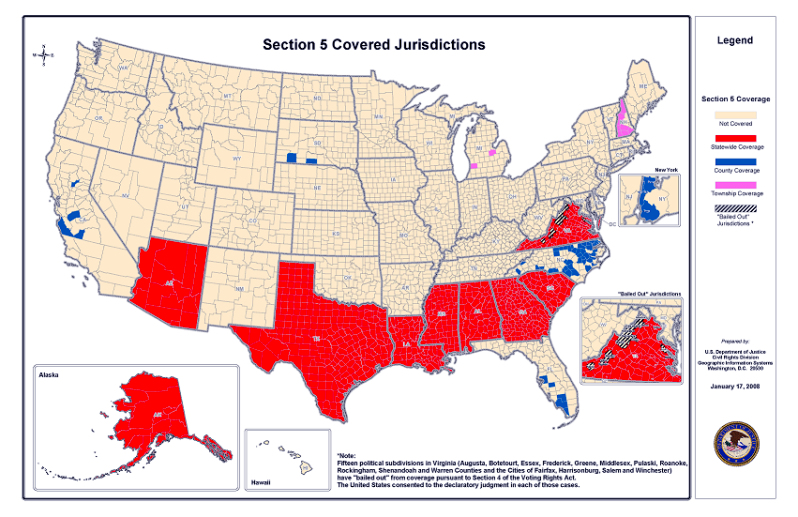In 1965, when President Johnson signed the landmark Voting Rights Act into law, he proclaimed that, “the right to vote is the basic right, without which all others are meaningless.”
Today, as Attorney General, I have the privilege – and the solemn duty – of enforcing this law, and the other civil rights reforms that President Johnson championed. This work is among the Justice Department’s most important priorities. And our efforts honor the generations of Americans who have taken extraordinary risks, and willingly confronted hatred, bias, and ignorance – as well as billy clubs and fire hoses, bullets and bombs – to ensure that their children, and all American citizens, would have the chance to participate in the work of their government. The right to vote is not only the cornerstone of our system of government – it is the lifeblood of our democracy. And no force has proved more powerful – or more integral to the success of the great American experiment – than efforts to expand the franchise...
As concerns about the protection of this right and the integrity of our election systems become an increasingly prominent part of our national dialogue – we must consider some important questions. It is time to ask: what kind of nation – and what kind of people – do we want to be? Are we willing to allow this era – our era – to be remembered as the age when our nation’s proud tradition of expanding the franchise ended? Are we willing to allow this time – our time – to be recorded in history as the age when the long-held belief that, in this country, every citizen has the chance – and the right – to help shape their government, became a relic of our past, instead of a guidepost for our future?
For me – and for our nation’s Department of Justice – the answers are clear. We need election systems that are free from fraud, discrimination, and partisan influence – and that are more, not less, accessible to the citizens of this country.
In that speech, AG Holder referred frequently to and defended the ongoing need for the provisions in the 1965 Voting Rights Act. The focus of that legislation was to outlaw voting practices that had been responsible for the widespread disenfranchisement of African Americans in the U.S. In doing so, it gave the federal government special jurisdiction in certain areas where those practices had been employed.
The Act established extensive federal oversight of elections administration, providing that states with a history of discriminatory voting practices (so-called "covered jurisdictions") could not implement any change affecting voting without first obtaining the approval of the Department of Justice, a process known as preclearance.
The covered jurisdictions that required pre-clearance of any changes to voting laws included certain states, counties and municipalities that were outlined in the law. Here is a map of where those laws apply (red for states, blue for counties and pink for municipalities).

There are currently 8 states that have passed voter ID laws. Four of them (South Carolina, Texas, Mississippi and Alabama) require pre-clearance from DOJ and four do not (Wisconsin, Kansas, Rhode Island and Tennessee). We can expect a different reaction from DOJ to the laws passed in the later due to all of this. Some have speculated that for states where pre-clearance is not required, DOJ will be limited to waiting until after an election to demonstrate discrimination.
Its important to keep these laws in mind when we watch DOJ and the Civil Rights Division at work in protecting our right to vote.




No comments:
Post a Comment